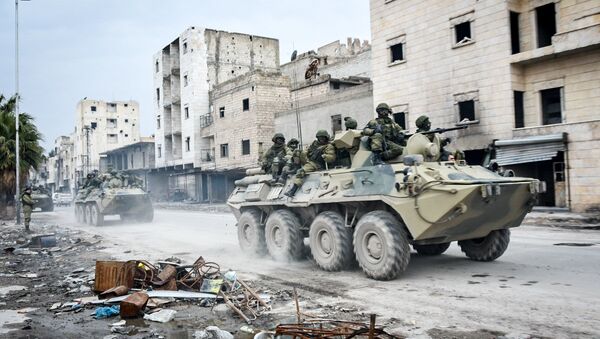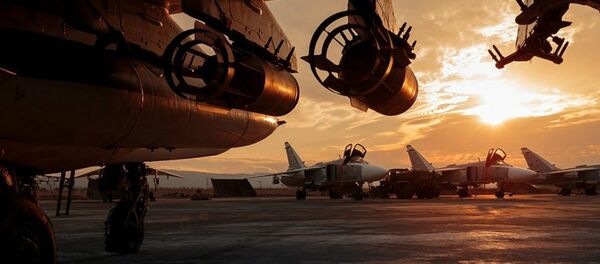"As for anti-Russia hysteria, which has been spread in the context of Aleppo, I think it's quite obvious that it is in line with the efforts to pressure Russia. These efforts have no future, but unfortunately such policy has been implemented during the recent years," Tokovinin said.
He added that media reports sometimes called the representatives of militant groups fighting in Syria as "brave revolutionaries," but when the members of these groups carried out terrorist attacks in Europe the same media refrained from labeling them so, calling them terrorists.
According to the diplomat, the main problem in the Middle East is a struggle against extremism.
"Today, the main goal in the Middle East is fight against terrorism, against extremist armed groups, which pose thereat to everyone — to… the Middle Eastern states, Europe, the United States and Russia, as well as to all countries in the world. This is a very real threat and efforts should be united against it," the ambassador said.
The so-called Arab Spring protests in Syria that took place in 2011 resulted in clashes between the government forces and opposition. Since then, the Middle Eastern country has been mired in a war between authorities in Damascus, numerous opposition factions, as well as terrorist groups. The international community, including Russia, has undertaken a number of steps to settle the conflict.
Russia continues to undertake every effort at helping war-torn Syria's opposing sides reach a peace agreement, the Russian ambassador to Belgium said.
"We are doing and will continue to do everything with our power to promote such dialogue and lead Syria's opposing sides to mutually acceptable agreements. Because the future of Syria can only be determined by Syrians themselves. Of course, this is given a continued fight against terrorist groups," Tokovinin said.
The roadmap for achieving peace in Syria was laid out as far back as late 2015, when the UN Security Council adopted Resolution 2254, the ambassador emphasized, adding that the process, also driven by other international decisions taken with Russian input, involves both fighting terrorism and striving for an inclusive political settlement.
Resolution 2254 was adopted in December 2015 and endorsed a number of earlier plans to start political settlement for the Syrian conflict. The preceding international agreements included the 2012 Geneva Communique and the Vienna Statements by the International Syria Support Group (ISSG).
"When talking about Syria, the aim is to keep it a coherent, sovereign and independent state with a multireligious and secular character which would ensure equal rights and opportunities for all its citizens. This requires talks, dialogue between the government and the opposition," Tokovinin said.
The earliest Syrian peace talks are likely to start in late January in Kazakhstan's capital Astana following a late 2016 Russian-Turkish agreement. The talks come after a UN Security Council Russian-Turkish-backed resolution on a ceasefire. A nationwide ceasefire between Syrian government troops and several opposition factions has already come into force. The Astana talks will be followed by a UN-backed settlement round in Geneva in February.
Never miss a story again — sign up to our Telegram channel and we'll keep you up to speed!



